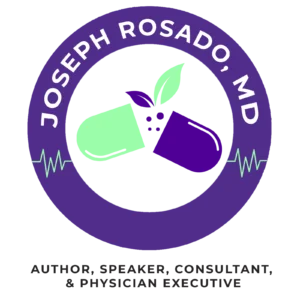Ketamine Treatment for Depression and PTSD
Guide to Overcoming Depression and PTSD
Introduction
Hi, my name is Dr. Joe Rosado, and I specialize in treating treatment-resistant depression and PTSD using ketamine therapy. In this guide, I'll explain how ketamine treatment works, what to expect during the process, and share some success stories to help you understand the benefits of this treatment.
Understanding Ketamine Treatment
Ketamine is a medication that has shown great promise in treating depression and PTSD, especially in cases where other treatments have failed. It works by affecting certain chemicals in the brain, providing relief from depressive symptoms and PTSD.
The Treatment Process
1. Initial Consultation: Every patient starts with a free 15-minute consultation. During this session, we'll review your medical history and current medications to determine if ketamine therapy is right for you.
2. Questionnaires: To better understand your condition, you'll complete several questionnaires:
- PHQ-9: Measures the severity of your depression.
- GAD-7: Assesses your anxiety levels.
- CAPS: Evaluates the presence and severity of PTSD.
- MDQ: Checks for mood disorders.
- ASRS: Screens for ADD/ADHD if necessary.
3. Treatment Protocol: If you are a suitable candidate, we'll start with a standard protocol of ketamine infusions twice a week for three weeks. After each week, you'll repeat the questionnaires to track your progress.
4. Follow-Up and Adjustment: At the end of the three weeks, we'll review your progress and discuss any additional treatment you might need. Some patients may require booster treatments once a month or every few months, similar to how COVID-19 vaccines are administered.
5. Personalized Care: If you experience any side effects or have concerns during treatment, we'll have a face-to-face or virtual meeting to adjust your treatment plan accordingly.
Success Stories
One of my most notable success stories involves a veteran who suffered a traumatic brain injury and PTSD after an explosion. Initially, he could not drive or ride a bicycle. After starting ketamine treatment, he regained these abilities, significantly improving his quality of life. His story is just one example of how ketamine therapy can make a substantial difference.
Conclusion
Ketamine treatment offers hope for those struggling with treatment-resistant depression and PTSD. By following a personalized and scientifically-supported protocol, we can help you take control of your mental health.
Set up your free consultation today to see if ketamine therapy is right for you.
Thank you for considering this treatment option, and I look forward to helping you on your journey to better mental health.
What Do You Want To Learn About?

For Physicians
Stay Up To Date with My Research

For Your Company
Professional Public Speaking

For Patients
Knowledge Is Power

